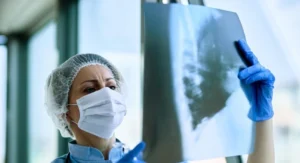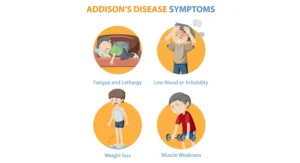Pickle Allergy: Symptoms, Causes, and Treatment
By TOI Desk Report
November 25, 2023
Update on : January 31, 2025

Pickle Allergy is one of the commonest among food allergies. Understanding what causes this Allergy is interesting. The pickle is not the actual cause of this Allergy. The condition arrives due to the preservatives used in the making of pickles.
Pickle adds a spice if taken with a simple food like bread. People often use it to elevate the taste of their meals. But sometimes, it can be dangerous for their health.
Understanding Pickle Allergy
Preservatives, upon absorption in our gastrointestinal tract, enter the blood. They can cause hypersensitivity reactions. This causes a strong stimulation of the defense system mediators. These mediators start reactions in our body thus causing Allergy.
Prevention, education, and emergency management skills are important when dealing with allergies. Making an allergy action plan is a crucial step if you are a sensitive person.
A. Pickle Allergy Indications/ Symptoms
There are some common indications that someone has Pickle Allergy. Keep in mind that these symptoms vary. This variation depends upon the general health of the person.
1. Skin Related:
- Rashes
- Itching
- Redness
- Hives
- Inflammation
2. Related to GIT:
- Diarrhea
- Vomiting
- Cramps
- Abdominal pain
3. Anaphylactic Reactions:
- Low Blood Pressure (hypotension)
- Dizziness
- Throat Swelling
4. Breathing Problems:
- Wheezing
- Coughing
- Difficulty in breathing
Other general symptoms can include watery eyes and runny nose.
B. Pickle Allergy Diagnosis
If someone experiences such an allergic reaction, they must seek medical aid. This can be an emergency, so you must deal with it seriously. Family history and previous allergies contribute a great deal to its diagnosis. Skin prick test is one of the most common tests when diagnosing allergic reactions.
- In the Skin Prick test, the medical practitioner takes a minute amount of pickle extract. He applies it to the skin and observes the changes. If the person is allergic to pickles, she develops inflammation and Allergy. If not, nothing happens.
- A blood test is also important in the diagnosis of Pickle Allergy. It measures the immunoglobulins produced in the blood against the pickle allergens. This test is an IgE-specific test.
Keeping a check on the food intake can help in the diagnosis.
We can use simpler methods to detect the cause of Allergy. For example, remove the pickle from your diet temporarily. Avoid the related preservatives, too, and check the improvement. This step can help in the differential diagnosis.
We can confirm the case of Pickle Allergy by the gradual oral intake. If the reaction occurs after its reintroduction, we can confirm the case. Always seek guidance from a certified healthcare professional while doing such tests.
C. Causes of Pickle Allergy
As I have stated earlier, the reaction is caused by the preservatives. Cucumbers, vinegar, spices, and artificial preservatives are the prime culprits. Contamination during its manufacturing can cause poisoning.
Parabens, added to the pickle to increase its shelf life, are harmful. Not all, but some brands use these preservatives. Pickle, if made in saltwater brine, can be dangerous.
- Vinegar contains acetic acid. This chemical is harmful sometimes if taken by sensitive individuals. Vinegar is a preserve of pickles. So, it can harm by triggering allergies.
- Additives and Spices like Sulfites and mustard seeds can incite allergic responses. It is seen in people with weak immune systems.
- Cucumber proteins are a prime ingredient in the pickling process. If absorbed in blood can elicit hypersensitivity reactions.
- Some individuals are intolerant to the Histamine. If released, it can cause severe unwanted reactions in sensitive individuals. It’s present in many fermented foods.
D Pickle Allergy Management
The affected individual presents in the emergency wards of the hospital. Proper care is necessary to manage these patients in the ER. First of all, the practitioner should check and maintain vitals. Vitals are essential to maintain the homeostatic functions of the body.
Reassurance of the Patient is necessary. The attendants should receive proper counseling to take care of the Patient. They must know the use of Epinephrine pens in case of emergency.
To avoid such incidents, read food labels with care. Consume home-cooked meals. Cases of accidental exposure are rare. People must use Pickle alternatives or prepare it at home.
E. Pickle Allergy Treatment
Adding pickles to your food is good. People love to add this as an extra ingredient to their food. Proper prevention and vigilance are necessary while using preservatives. Doing this can reduce the risk of future attacks.
Medicines like Antihistamine and Epinephrine should be used as advised. Moreover, Patients must do regular follow-up checkups at the healthcare centers. Family or close contact individuals must know the use of emergency medications.
In this article, we have discussed the leading causes of Pickle Allergy. It also describes the indications, symptoms, and treatment.
Conclusion:
The preservatives used to make pickles are the cause of the ailment. When combined with simple fare like bread, pickles offer a spicy touch. People use it to improve the flavor of their food.
Yet it might be harmful to their health. After entering our bloodstream through the gastrointestinal system, preservatives might trigger hypersensitivity reactions.
They, as a result, stimulate the mediators of the defense system. These mediators set forth body reactions that result in allergies.
Frequently Asked Questions (FAQs)
What is the cause of Pickle Allergy?
The preservatives used in this process cause attacks of Allergy. Acetic acid, cucumber, and several additives are responsible for the attack. Pickle Allergy is a less common subject.
What are Pickle Allergy symptoms?
Rashes, inflammation, swelling, irritation, fever, and redness are the symptoms associated with it. Moreover, runny nose, coughing, eye irritation, conjunctivitis, and lacrimation are also common.
How to treat an allergic reaction?
This is a medical emergency. The patient should be taken to the hospital immediately after this attack. If available, antihistamine and Epinephrine should be given. The incidence of this condition is rare. But we should be prepared for such scenarios.
















